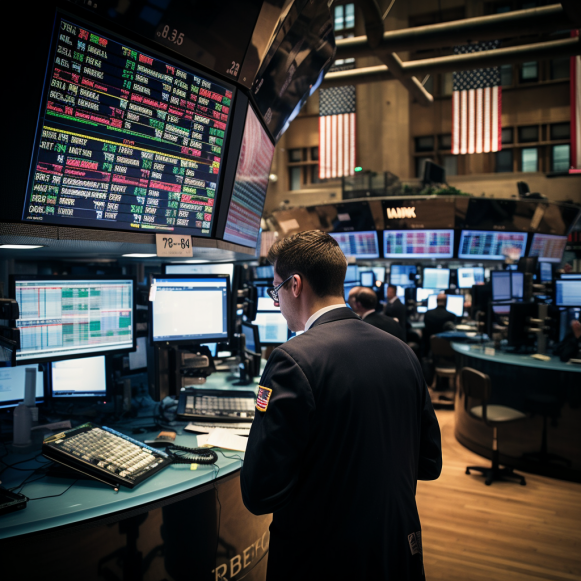A former BlackRock stock chief shares 5 stocks and one area of the bond market he likes right now as growing recessionary pressures threaten to spoil the S&P 500’s rally

- Bob Doll thinks a mild recession will hit the US economy sometime in the near-to-mid future.
- But he still thinks there are opportunities to be found, especially in value names.
- Five stocks he likes in particular are CI, MCK, VLO, PSX, and ADBE.
Bob Doll isn’t overly optimistic about the broader stock market’s upside potential from here.
Leading economic indicators such as the Treasury yield curve and The Conference Board’s Leading Economic Index tell the Crossmark CIO and former BlackRock stock chief that a mild recession is on the way, and he expects the S&P 500 to fall from current levels above 4,400 to a range of 3,800-4,200.
But Doll believes there are still opportunities in this market, particularly in stocks with low valuations and quality, predictable, and consistent earnings.
He believes that there are a few market sub-sectors that are critical to have exposure to, and that some stocks fit this description.
One is in health maintenance organizations (HMOs), which are essentially insurance companies. In a downturn, he believes they will be more defensive than the rest of the market and will be well-positioned to improve profitability.
He also described them as “very cheap.”
He likes the names Cigna (CI) and McKesson (MCK). The forward price-to-earnings ratio for Cigna is 11.85, while McKesson’s is 16.61. In comparison, the S&P 500’s forward P/E ratio is 20.41.
The second sector in which he is bullish is energy stocks, particularly refiners, as oil prices rise. Valero (VLO) and Phillips 66 (PSX) are two of his firm’s bets, but if a recession occurs, he says his bullishness will shift to HMOs.
He cited capital discipline as one of the main reasons he likes refiners. Capital discipline refers to how refiners reinvest profits in order to drill for more oil, which has an impact on supply and prices.
“It used to be ‘I have cash, I’m drilling a hole.'” “I have more money, and I’m going to drill another hole,” Doll explained. “They’re more disciplined to figure out when and how to deploy that.”
Doll also likes the low valuations of the sectors. Valero’s forward P/E ratio is 6.56, while Phillips 66’s is 8.58.
“When you look at the contribution of energy to the S&P 500 and then their capitalization in the S&P 500, it’s very cheap,” he said. “Their capitalization percentage is way below their earnings percentage.”
Finally, he stated that while it is important to have exposure to tech stocks given their recent run, investors should be wary of high valuations. Adobe (ADBE), a cloud computing software company, is one that he believes is reasonably priced. Its forward P/E ratio is 29.5, which is roughly in line with the average for the technology sector.
Outside of the stock market, Doll believes bonds are more appealing than they were last year. He prefers Treasurys in the bond market, with 10-year yields yielding more than 4%. In comparison, corporate bonds do not provide a sufficient premium over risk-free Treasurys. Aaa corporate bonds currently offer a 0.79% premium over 10-year Treasury notes.
“Last year, we said own as few bonds as possible or none at all.” “A 1.5% 10-year Treasury is a bad deal, and bonds have obviously sold off hard,” he said. “At a 4% 10-year Treasury yield, own some bonds.”
Many market observers have lauded Treasurys’ attractiveness in the current environment, citing relatively high yields and the assets’ ability to provide a hedge in the event of a recession. If a downturn occurs, yields are likely to fall, causing prices to rise and investors to sell them at a premium.
Treasury bonds can be purchased through a brokerage firm or through TreasuryDirect.






